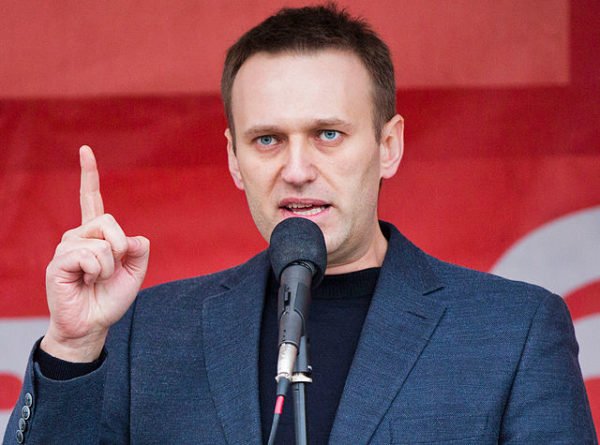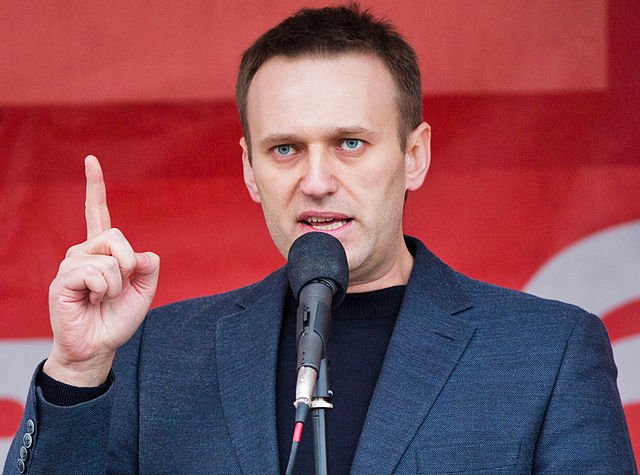
President Donald Trump has announced he refuses to condemn Russia over the poisoning of opposition leader Alexei Navalny, saying he has not seen proof.
He said the case was “tragic” but urged reporters to focus instead on China, which he said was a bigger threat to the world than Russia.
Germany and NATO say there is “proof beyond doubt” that Alexei Navalny was attacked with a Novichok nerve agent.
Alexei Navalny’s team says he was poisoned on the Kremlin’s orders. However, Russia denies this.
On September 5, the Russian foreign ministry suggested that if a Novichok-type nerve agent had indeed been used, it did not necessarily originate in Russia.
Alexei Navalny – an anti-corruption campaigner who has long been the most prominent face of opposition to President Vladimir Putin in Russia – is in a coma in a Berlin hospital having been airlifted there from Siberia, where he fell ill.
Speaking at a press event on September 4, President Trump said he had yet to see evidence of poisoning in the case.
He said: “So I don’t know exactly what happened. I think it’s tragic, it’s terrible, it shouldn’t happen. We haven’t had any proof yet but I will take a look.”
Russia: Alexei Navalny In Coma After Allegedly Being Poisoned
Alexei Navalny Arrested at Moscow Anti-Putin Rally
Alexei Navalny Sentenced to 30 Days Administrative Arrest
President Trump also stopped short of criticizing Vladimir Putin and said Beijing posed a greater threat.
He said: “It is interesting that everybody’s always mentioning Russia and I don’t mind you mentioning Russia but I think probably China at this point is a nation that you should be talking about much more so.”
Tests at a military laboratory in Germany show “beyond doubt” the presence of a Novichok nerve agent, the German government and NATO say.
On September, NATO called for Russia to disclose its Novichok nerve agent program to international monitors. Secretary General Jens Stoltenberg said members were united in condemning the “horrific” attack on Alexei Navalny.
Jens Stoltenberg said it required an international response, but gave no further details.
The US National Security Council has pledged to “work with allies and the international community to hold those in Russia accountable”.
The brief statement released by the foreign ministry on September 5 noted “multiple hostile statements made against Russia” over Alexei Navalny’s illness.
However, experts in Western states and NATO had, it said, for years worked on compounds used to make Novichok nerve agents.
“For example, in the USA, over 150 patents were officially issued to developers of technologies for their combat use,” the Russian foreign ministry said.
Under the 1992 Chemical Weapons Convention, Russia and the US committed themselves to eliminating all of their nerve agents and other chemical weapons. The US is expected to destroy its final stockpile be the end of 2023 while Russia officially completed the process in 2017.
The Kremlin has repeatedly denied any involvement in Alexei Navalny’s case.
Foreign Minister Sergei Lavrov said Germany had not yet shared any findings with Moscow prosecutors and said Russia had “nothing to hide”.
Meanwhile a toxicologist in Omsk – where Alexei Navalny was initially treated after the plane he was flying on made an emergency landing – insisted no poison had been found by doctors who examined him there.
“Any external factors could have triggered a sudden deterioration. Even a simple lack of breakfast,” said Alexander Sabayev, chief toxicologist for the Omsk region.
Alexei Navalny fell ill last month while on a flight from Siberia to Moscow.
The plane made an emergency landing in Omsk and Russian officials were persuaded to allow him to be airlifted to Germany two days later.
A nerve agent from the Novichok group identified by Germany in the Navalny case was also used to poison ex-spy Sergei Skripal and his daughter in Salisbury. They both survived but a local woman, Dawn Sturgess, died after coming into contact with the poison.
